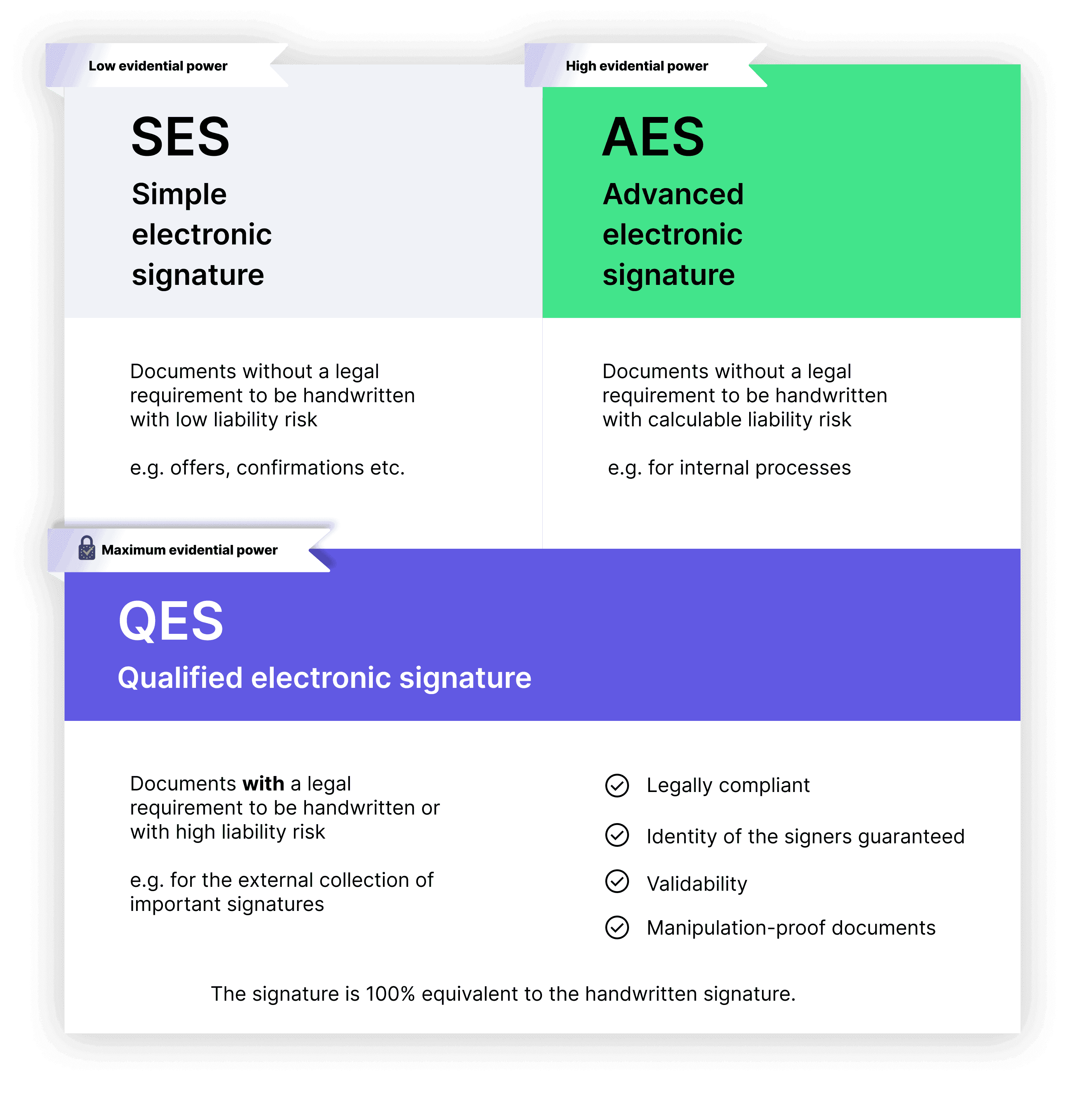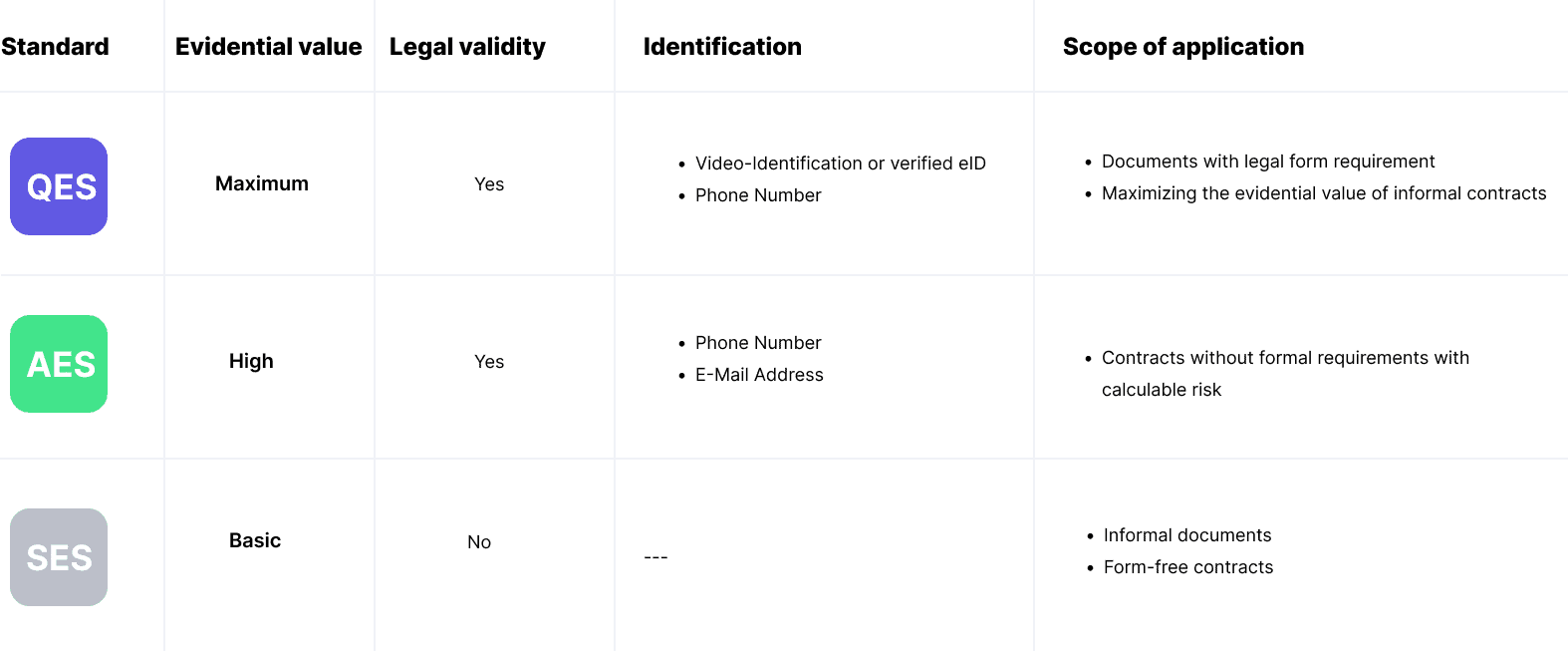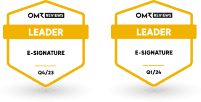Agreement
We use cookies on our website to provide you with the best possible experience. By clicking "Accept All" you agree to the use of all cookies and to our privacy policy.
QES, AES, SES: Overview of all e-signature-standards
Updated on 20.02.2023
Not all digital signatures are created equal!
Almost all of us have already drawn a photo of his/her signature on a document and checked it off as digitally signed. This may have been sufficient for simple and informal documents, however, one comes up against one or the other limit with this approach. For this reason, a distinction is made between three types of signature, and only the qualified signature is 100% legally equivalent to the handwritten signature. This requires a more complex technology (e.g. sproof sign) that can create an encrypted, verifiable signature in the background.
Depending on the application and requirements, a specific signature standard must be selected. The legal basis for this in the EU is the eIDAS Regulation , which defines requirements for the individual forms. The three most important signature standards and their various properties are explained in this article.

The QES - the digital equivalent of the handwritten signature
According to the eIDAS Regulation, a qualified electronic signature (QES for short) is 100% legally equivalent to a handwritten signature and meets the highest quality criteria. However, the signature must be executed using a qualified signature creation device and 2-factor authentication. In Austria, for example, this is realized with the cell phone signature (ID Austria). The qualified digital signature must also include the name of the signatory.
Therefore, only the qualified signature should be used for contracts with a legal formal requirement (written form requirement) and high demands on the probative value as well as the trust of all contracting parties. In addition, the QES can maximize the evidential value of form-free contracts and minimize the risk.
The QES is the worry-free signature speciality of sproof sign. With us, even the highest requirements are met.
The AES - the flexible choice for documents without formal requirements.
In addition to the simple digital signature, the advanced electronic signature (AES for short) offers the possibility of unique identification of the signatory. The identification can be done e.g. via the e-mail address, telephone number, etc. and the identity check is thus also possible afterwards.
Every signature made with sproof sign already achieves the high level of security guaranteed by the advanced digital signature. With us, the signer is additionally identified, e.g. with the help of the mail address. Thus, this type of digital signature already has sufficient probative value for many applications. The AES is mainly used for contracts without formal requirements, such as rental agreements or simple employment contracts.
The SES - for informal documents without liability risk
The simple electronic signature (SES for short) has no probative value and can in no way replace a written signature, as it does not contain any means of identification and can therefore not be clearly assigned to a person. It is therefore only suitable for informal contracts and informal documents. A common example of a simple signature is an uploaded photo or a scan of a signature that is placed on a document.

*The examples may vary depending on the country and internal guidelines and should therefore only serve as an aid to understanding! Consult legal counsel or our sales department for your specific case.
More blog entries
Request electronic signatures - obtain multiple digital signatures via email (internal & external)"sproof 2.0" is ready for you now10 criteria you have to consider when choosing a provider for (qualified) electronic signaturesWhat is the eIDAS Regulation? Basics & advantages at a glanceWhat is the qualified electronic signature in Europe (Update 2023)
